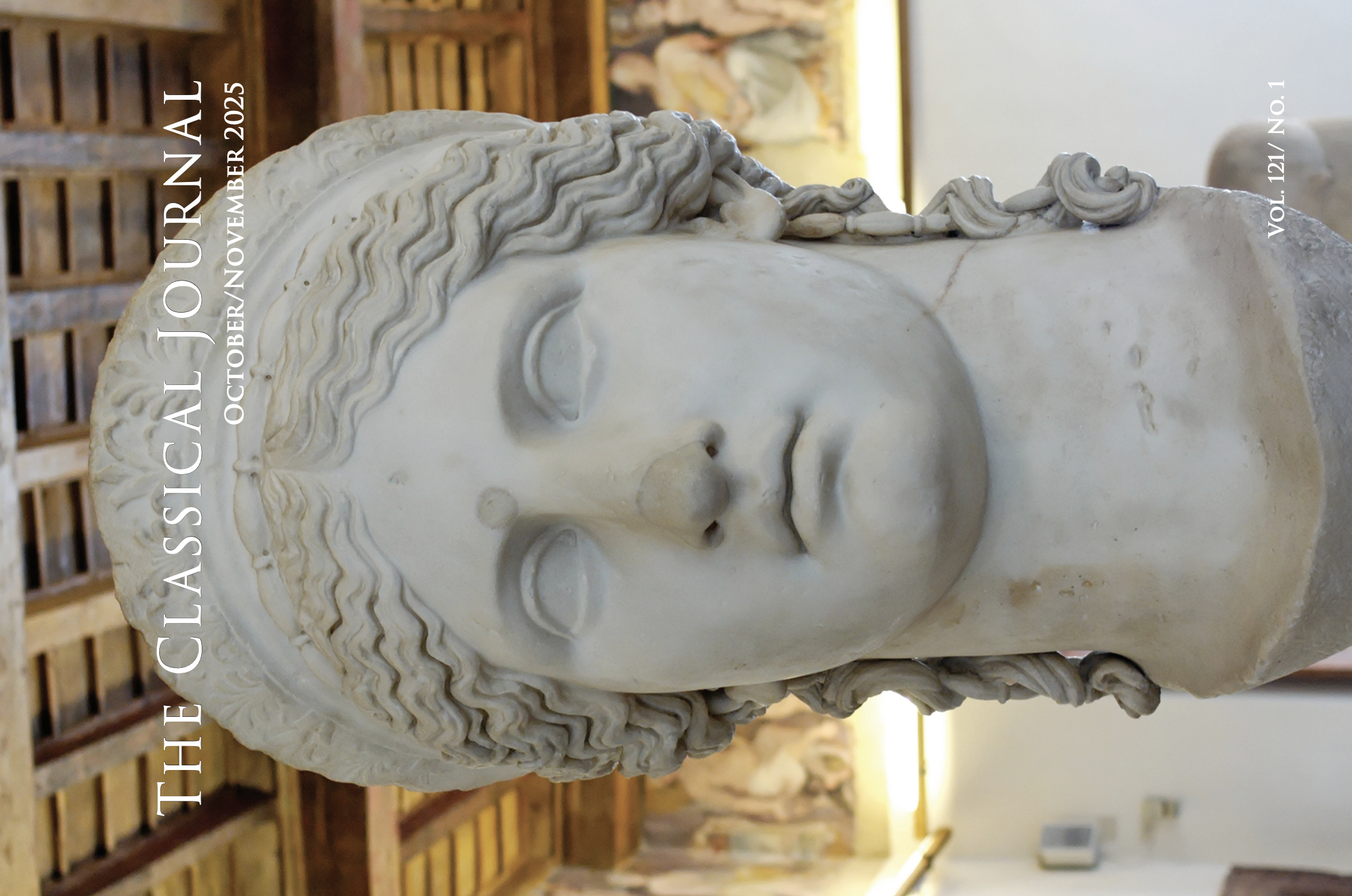The following articles are contained in CJ
121.1
Abstracts of Articles
Last Tango in Ogygia: Divine and Human in Odyssey 5
With the first appearance of the Odyssey’s hero, the fifth book can in some sense be considered the beginning of the epic proper. Its narrative presents a coherent whole that takes the hero from his departure from Ogygia to his arrival on Phaeacia. In addition to its narrative unity, it possesses a significant thematic unity that centers on the issue of mortality and immortality, both the conjunction and differentiation of gods and men. The stage is set by il gran refiuto, Odysseus’ refusal of immortality and his choice to return to Ithaca. But the tension between the divine and human permeates the book in ways both obvious and subtle. It also serves to position the Odyssey at a pivotal moment in the relations of gods and mortals; their previous intimacy is waning, and apotheosis belongs to a bygone era. I argue that this central theme not only dominates Book 5 from beginning to end, but that it also offers a framework, so to speak, for the whole poem.


